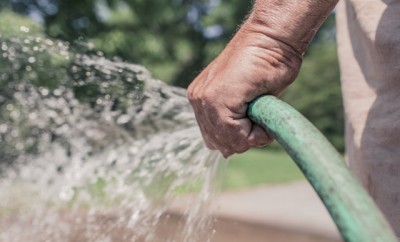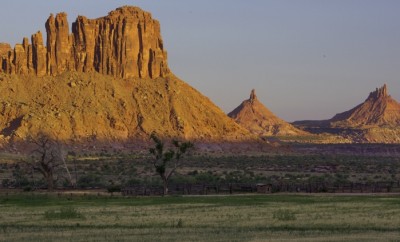Environment
The great honey debate

Image: 285313391/Shutterstock
The debate rages on whether consuming honey is ethical, both for animal welfare and the environment. While many consumers aren’t aware of how honey is produced, the process raises concerns for purist vegans. Considering less that .5 percent of the American populations follow a strict vegan diet, it’s important to note the environmental concerns of honey as well.
Honey is the primary food source for bees. In the wild, it’s produced when honeybees collect and partially digest nectar from various flowers. They return to the hive, then regurgitate and eat the nectar over and over again until the substance breaks down into honey. The substance is then stored in honeycomb cells and sealed for storage.
Strict vegans don’t agree with the commercial production of honey for many reasons. The first is fundamental: they believe all animals are equal. They wouldn’t drink cow’s milk, a byproduct, so why would they eat honey? Other reasons for concern are production practices like controlling how the hive is constructed (for ease of honey extraction) as opposed to letting it form naturally, trapping the queen inside the hive, and using hormonal gasses that trick the bees into docility upon extraction.
The environmental concerns of commercial honey production are murky. Of course, bees are a fundamental element to a healthy ecosystem. As they forage nectar from flower to flower, they in turn pollinate plants. Without them, whole vegetation systems would surely die. As a direct result of their expert pollination techniques, a new industry has arisen: rental hives.
Many people have never heard of rental hives, but the concept is intuitive. Honey producers cultivate large, functioning hives and ship them around the country to help pollinate fields of almonds, avocados, broccoli, and tomatoes (amongst others).
Rental hives are undoubtedly problematic for many reasons, the first being animal welfare. We think of bees having the freedom to roam and return to the hive at will, participating in a harmonious ecological cycle. But the reality is rental hives are sealed up and stored in the back of 18-wheelers for most of the bee’s life, being shipped from one locale to another.
And as for the environment, we all know how pollution from automobiles, especially 18-wheelers, contributes to greenhouse gasses and rising global temperatures. Our climate is changing due to so many variables, including needless transportation.
While there are downfalls to commercial honey production, it’s important to note that there are businesses who do it properly and ways to consume it ethically. The first step is establishing a local beekeeper, whom you can visit to inspect their operation. Choosing local is important to lessen transportation and increase transparency.
If you don’t live near a beekeeper, consider purchasing from companies certified by True Source, a business that helps identify ethically sourced honey. A few businesses certified by True Source are Bee Maid Honey, Crockett Honey Co, and Dutch Gold Honey. You can view a full list of certified companies, beekeepers, processors, importers, and exporters on True Source’s member website.





0 comments